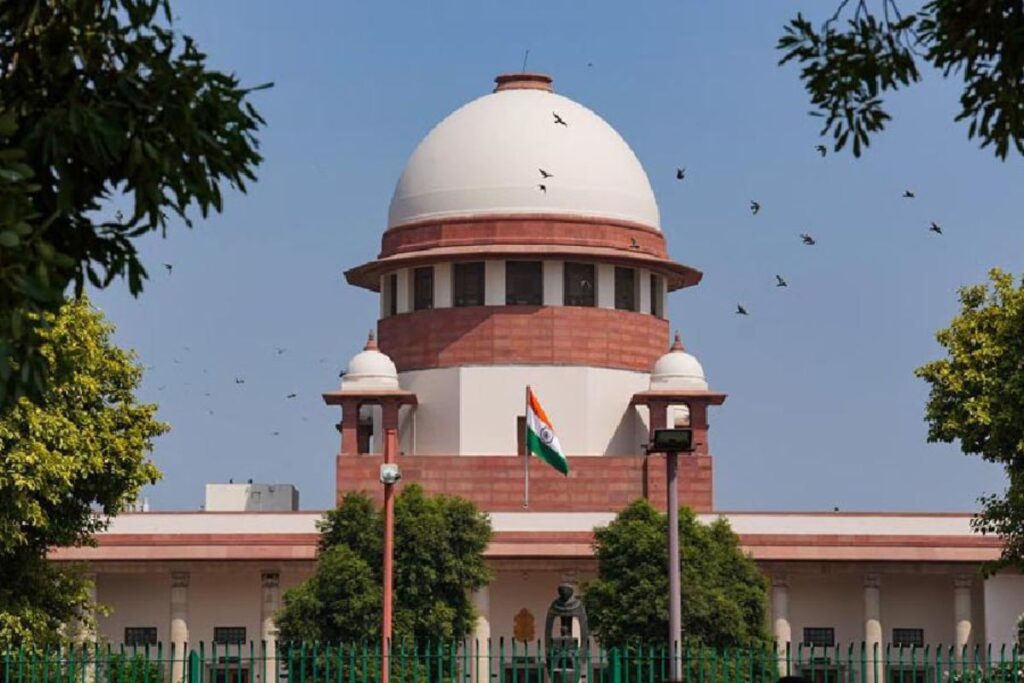Rehan Khan
On 23rd September, the Supreme Court clarified that downloading, storing, or watching child pornography, especially with the intent to share or commercialize it, is an offense under the Protection of Children from Sexual Offences (POCSO) Act, 2012. The decision, rendered by a Bench led by Chief Justice of India DY Chandrachud and Justice JB Pardiwala, overturned a controversial Madras High Court ruling, which had previously held that merely viewing such content in private did not constitute an offense. The court emphasized the degree of mens rea (intention) necessary to categorize such actions as criminal under the POCSO Act.
The apex court’s judgment identified three distinct offenses under Section 15 of the POCSO Act. Firstly, sub-section (1) criminalizes the failure to delete, destroy, or report child pornography if the person possessed it with the intent to share or transmit. To establish intent, the manner of storage and the circumstances under which the material was retained are taken into account. The Court explained, “The intention must be inferred from the actus reus (the act itself), particularly when the material is not deleted or reported. This implies the accused intended to distribute or share the content.”
Sub-section (2) punishes the actual transmission, propagation, or distribution of child pornography, along with any facilitation of these acts. The Court noted, “There must be more than mere possession. This could include actual transmission or any preparatory act indicating that the person was set to share or display the material.” In such cases, the intention can be derived not just from possession but also from additional evidence suggesting facilitation or preparation for distribution.
Sub-section (3) deals with the storage or possession of child pornography for commercial purposes. In this scenario, it is necessary to prove that the material was retained with the intention to derive financial gain. However, the realization of that gain is not a prerequisite for conviction. As the Bench observed, “Even without actual commercial gain, the intent to benefit from storing such material is enough to constitute an offense.”
In a broader sense, the Supreme Court also addressed the concept of “constructive possession.” The Court ruled, “Even without physically downloading or saving material, mere viewing of child pornography online can amount to possession under Section 15 if the individual exercises a degree of control over it.” This expands the scope of the offense to include those who access child pornography without saving it on their devices.
The Court took issue with the terminology used in legal discourse surrounding child pornography. It suggested, “We urge the parliament to amend the POCSO Act to replace the term ‘child pornography’ with ‘child sexual exploitative and abuse material.’” The Court also directed, “All courts should refrain from using the term ‘child pornography’ in their orders.”
The ruling came in response to an appeal filed by the NGO Just Right for Children Alliance, challenging the Madras High Court’s verdict. The High Court had ruled in favor of S Harish, who was accused of downloading and viewing child pornography. It had held that merely watching such material did not fall within the purview of the POCSO Act, a decision that attracted widespread criticism, especially after the Supreme Court described it as “atrocious.”
Notably, the Madras High Court’s decision, rendered by Justice N Anand Venkatesh, had argued that the act of downloading or watching child pornography in private did not constitute an offense under the POCSO Act or the IT Act. This judgment, however, has now been quashed by the apex court, which observed the growing issue of pornography addiction and underlined the need for a comprehensive legal approach to address the problem.
In a broader context, the Supreme Court’s ruling also pointed to the lack of adequate sex education programs in India, which has been met with resistance from several states. The Court stated, “Implementing comprehensive sex education programs, which include discussions on the legal and ethical ramifications of child pornography, can act as a deterrent to potential offenders. Cognitive behavioral therapy (CBT) has shown effectiveness in addressing the cognitive distortions of individuals involved in viewing or distributing child pornography.”

